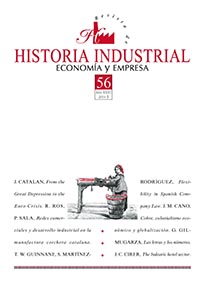Flexibility in Spanish Company Law, 1885-1936
Keywords:
limited liability, business code, commercial registry, SpainAbstract
The Spanish business code allowed firms two types of organizational flexibility in the late 19th and early 20th century. Firms enjoyed great leeway in adapting rules to their needs. The corporation was especially flexible in this way. Spanish law also allowed firms to in effect create their own legal form. Until 1920, firms faced the choices typical of civil-law countries, namely, the corporation, and the ordinary or limited partnership. But the Spanish business code was explicitly “open,” allowing firms to do something else if they wished. This second type of flexibility reached its zenith in the Sociedad de Responsabilidad Limitada (SRL), a form similar to Germany’s GmbH or Britain’s PLC. For its first decades the SRL was a creation of notaries and entrepreneurs, and was not written into Spanish law until 1953. This paper describes the law governing formation of Spanish companies, and documents the choices firms used.Downloads
Downloads
Published
How to Cite
Issue
Section
License
The author assigns all rights to the publisher. Creative Commons
The author who publishes in this journal agrees to the following terms:
- The author assigns all intellectual property rights exclusively to the publisher for the entire duration of the applicable intellectual property rights.
- The publisher will distribute the texts under the Creative Commons Attribution License, which allows others to share the work, provided that they acknowledge the authorship, its initial publication in this journal, and the conditions of the license.





